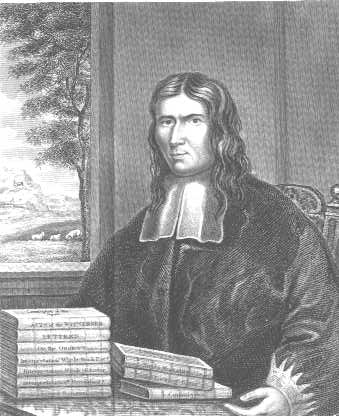 |
||
| Title |
Divine Songs of the Muggletonians
|
|
| Author | Joseph & Isaac Frost | |
| Year of Publication | 1829 | |
| Links | This volume can be read here, the file is rather large as the book has over 600 pages. | |
This is an interesting book, many of the songs would not be out of place in an orthodox church but even many of the more orthodox tunes do on closer inspection display aspects of Muggletonian theology, the two seeds being a common feature.
A high resolution copy of this handsome engraving that can be found behind the flyleaf of this volume may be found here.

The authors are a diverse lot, from the very early days of Muggletonianism to very contemporary songs. The chief author was one Boyer Glover who was a watchmaker in the 1700's. the songs vary from the beautiful to the bizarre (check out song 205). Many of the songs are put into there historical context, especially if they are linked to the life of the prophets (for instance songs 148 and 164) and some even have a theological dissertation with them (for instance songs 63 and 165). Many of the songs are extremely long and it is hard to imagine some of the hymns being sung, but you need look no further than song two for some rousing verse:
This is the Muggletonians faith,
This is the God which we believe,
None salvation knowledge hath,
But those of Muggleton and Reeve,
Christ is the Muggletonian's king,
With whom eternally they'll sing
In "Last Witnesses" William Lamont discovered that on 13/10/1881 Gladstone recorded in his diary that he was reading "Muggletonian Hymns" and that on 14/01/1882 he was considering buying a copy if the price was right.In George Williamson 1919 work he was very proud that he owned this volume which he seemed to think was very rare.
An early request to print a hymn book in the 1700's had been rejected as it thought that this would divert resources from printing the prophets works. Such a shortage of resources was not a problem for the Frost's (who also contribute some hymns to this book) but this book's use appears to have fallen from favour by the turn of the century. Hymns were always a bit out of place in a religion that rejected most forms of worship, although it seems that some of the songs were sung to the prophet in his lifetime, perhaps as the movement stopped meeting in pubs the desire and ability to sing hymns around the piano also diminished.